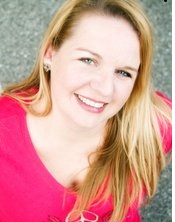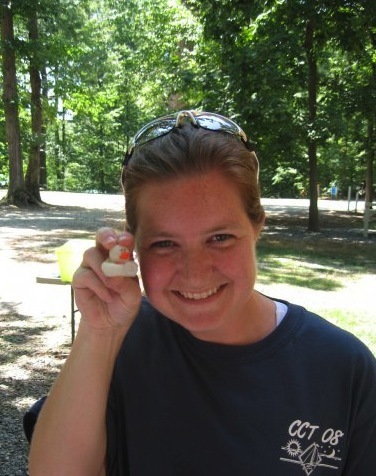This week’s featured writer is Angi Black, who is also a freelance editor for Wise Owl Words and a literary intern. She took some time out of her busy schedule to chat with me about her craft!
About Angi (in her own words): Originally a Mid-westerner and professional dancer-singer-actress, I now teach dance and theater in Southern Louisiana at a Performing Arts school. I volunteer way too much and make treats for people to bribe them into loving me. I’m quite good at it, so it has a great success rate. I also mom and wife and write words as often as I can squeeze them in.
About Angi’s writing: Angi writes both New Adult and Adult fiction. She loves a slow burn romance and writes in a very realistic style. Especially important are the little daily details that make up relationships (not just romantic ones). She explores what happens after the traditional happily ever after moment. You’ll never find insta-love in her books and there’s always a best friend. And usually, you’ll find her characters loving coffee or cupcakes.
Interview:
Diana: When did you first know you wanted to be a writer?
Angi: I’ve always written, but I was a dancer. I was that girl with a notebook and pencil at all times. Scraps of paper with things jotted down in every pocket and bag. The collector of quotes and words. When I was 21 I suffered a serious injury in the show I was doing. While I was laid up healing, words like ‘never dance again’ got tossed around. Obviously, I did dance, but in the lag time was the first time I considered being a writer. I didn’t really think about it again as a profession until I chose to stay home with my kids after they were born. I sat down and put a bunch of words and ideas into a story. After that, I couldn’t stop. I knew it’s what I wanted to do.
Diana: What drew you to write New Adult Fiction?
Angi: It’s what I’ve always written, it just didn’t ‘exist.’ haha. It’s such a funny thing to me that plenty of books were on the shelves about high school and plenty about adults but there wasn’t anything about the college years, the in-between. It was almost like the literary missing link. That age has so many firsts. It might not be your first love, but it’s usually the first love that could last. You live on your own. Maybe your first house even. Buying a car without your parents. The laundromat, grocery store, trusting yourself to make it to school and work. For some, paying your bills.
It’s a time where so much of what you’ve been exposed to growing up takes hold and shapes you into the adult you’re going to be. I love it. I wasn’t a fan of high school, and though I do love YA fiction, I really love that time in your life after Prom. And I love living those moments over and again.
Diana: What do you like to do for fun when you aren’t writing?
Angi: Create things. I love to craft and paint and draw and dance. I read. I watch certain TV shows and movies. And music. Music is my happy place. And baking!!
Diana: What do you find to be the hardest/easiest part about writing?
Angi: The hardest part about writing is letting go of my characters once the story is done. I get really attached. Because of that, sometimes I have a hard time moving on to the next book because I’m still stuck in the last one. The easiest? The easiest part of writing for me is the drafting. I hate revision (although I see its value and I do it willingly) with a passion. The next new shiny is always there, waving at me to come write it. But I can draft like the wind and I love it.
Diana: Based on your experience, what advice would you give other writers?
Angi: Three things. 1)Don’t quit. And if you’ve revised ten times and someone says “It’s almost there”, don’t think “I suck!” Get in there and revise again. 2) Don’t rush. This industry is one of patience. 3) Don’t write to make money. Write because you must, because you need the words, because you love it.
Diana: If you could spend the day with a fictional character, who would it be and why? And what would you do?
Angi: I have two, because you know, reasons. The first is Lestat. I want to pick his brain because he’s seen so much and experienced everything. plus, for a vampire that will rip your throat out, he’s still pretty dreamy. What would we do? I’d probably spend part of the time convincing him not to kill me, but after that, walk around NOLA or Paris and let him tell me how it was back in the day. Then I’d ask him to sing to me.
The second is Turtle Wexler from The Westing Game. She’d be all grown up now. I’d like to see what she did with her money from Westing and how life had been since then. I’d like to think we’d hang out at the old Westing place talking about the mystery she lived through and I’ve read a hundred times. It just seems like a great day.
Diana: Do you plan out your stories, or do you sit down at your computer and see where your story takes you?






